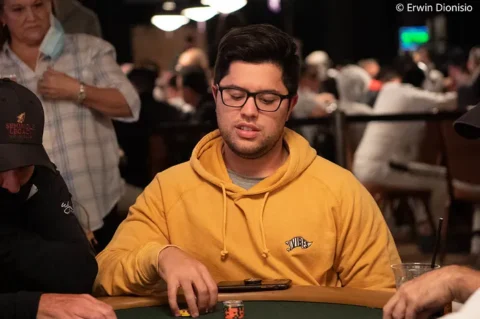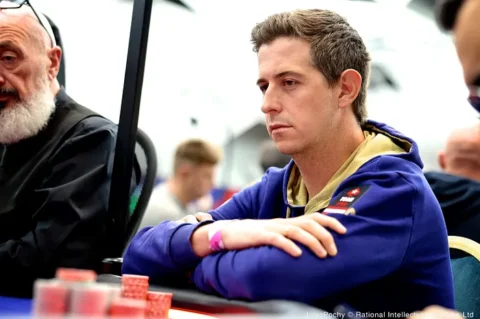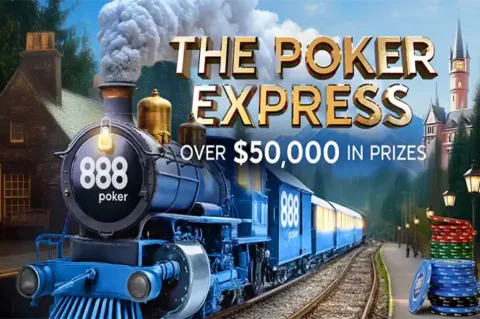For many years, I lost money playing poker. However, my love for the game and belief that it was possible to become a winner kept me showing up. On the one hand, it was a bit delusional and another example of the gambler’s fallacy playing itself out. On the other hand, I was clear-headed enough to know that in poker, you play against other players and that some combination of hard work, talent and opportunity, could result in an affordable pastime, a cool side hustle, a viable profession, or maybe even life-changing money. But I never undertook poker study.

It took about eight years of spinning my wheels before I decided it was time to really figure it out. Up until then, I had done only a little work to improve my game. For example, discussing hands with players better than myself, listening to poker podcasts like Thinking Poker, The Poker Guys, or some of Bart Hanson’s earlier content. I had used the free equity calculators available online. I had a fairly active 2+2 account. Moreover, I thought I had a natural card-sense, or a knack for the game. In many lineups, I could be one of the toughest players to play against. But still, I was losing. If I could go back to my former self and have a word, I’d say a thing or two about bankroll management, tilt, and game selection. Most of all, I would’ve told myself to start studying earlier.
The concept of “poker study” is a bit of a put-off for many people who love the game. It harkens back to grade-school, being forced to review material you weren’t particularly interested in, using notes you resentfully took down, half-awake. All to result in a final grade that came as a disappointment to your parents. At least, that’s how I felt about it – and I was pretty good at school! Now imagine someone who struggled with school, discovering a game that is one part competition, one part gamble, and a dash of common sense, being told they need to study in order to win. It’s sickening. I think it was Mike Matusow when he first saw a simulation said, “What the f*** have you people done to my beautiful game?”
Well. Welcome to the Solver Era.

Nick Petrangelo on Pio Solver
Half the Battle is Starting
In truth, I was intimidated. I didn’t know where to start. I didn’t know what poker software did what. If I had the software, I wouldn’t know how to use it. And then, there was the question of investment. “I can’t afford every program, course or subscription that is out there.” This combination of doubts kept me at bay. However, rather than focus on nailing it with what I studied, I should have been more concerned with just starting.
It’s important for a losing player to accept that their approach to the game is the cause for their results. They are losing because their approach is. If you continue doing what you have been doing, your results won’t change. You may have a short-term upswing to keep you in the game, but you will not actually be winning. People win in blackjack and baccarat every day but the casino is always the real winner. Likewise, the chips at the poker table will find their way into the better players’ stacks over time. The key, if you are playing to win, is to become the better player. And if you haven’t been doing any poker study, it’s time to start. This shift alone will be, no pun intended, game-changing.
What You Should Study First
It is undisputed in the professional poker playing community that preflop fundamentals are the bedrock of sound, winning poker strategy. The entire game tree that will unfold on the flop, turn and river is shaped by the hands each player has in their range to start with. Therefore, knowing your preflop ranges for your stack depths and positions is vital. Fortunately, for the newbie to off-table work (i.e., poker study), preflop fundamentals are solved. It is a matter of looking at charts and memorization.
For some, the thought of looking at charts and trying to remember them can feel stressful. I remember a while back, I was working with a student who was visibly shaken at seeing preflop charts for the first-time. He was accustomed to playing what felt right. However, seeing a solver’s output telling you how bad you’ve gotten it can be jarring, overwhelming, damning, and downright depressing. The good news is that it is learnable.
Poker Study Resources
We are now several years into the solver era. In reality, learning is easier than it’s ever been. Many courses have been put together by winning players who have done all the work for you. All you have to do is consume and engage with the content.
If you are looking for more course-shaped learning resources, then check out Cardplayer Lifestyle hub page for some of the best poker training sites. Most courses provide charts with a brain-friendly learning path. Keep in mind, some material is designed for beginners while others are designed for poker veterans. I would read the descriptions first and decide if the course makes sense for where you are at. Most training sites offer free discord channels so you can share hands, discuss strategy and ask questions.
Right now, I personally mix in courses and seminars from BBZPoker, Raise Your Edge, Run It Once, and GTOWizard in my study routine. However, it took me over six years to work these into my game. If you’re going to go the course route, start with one, implement what you learn, and then move on. It is very easy to end up with more content than you need, much like a home library with only a few of the books having been read. As far as poker books go, while it may not be the most efficient means of learning the game, there has been a fair amount written and worthy of a read.
The Poker Learning Curve
Like anything new to your brain, there is a learning curve. The human brain is a powerful engine, able to synthesize a lot of subject matter we stimulate it with. However, the more foreign the thing, the more time and repetition it needs. If we see something that is difficult or discomforting, the first impulse will be to reject it. That means the feeling of being overwhelmed and not wanting to move forward when studying is innate to our being. When starting to study, we are introducing our brain to a new thing that will take more than a moment to espouse.
When we learn a new trick in poker, it is common to execute worse than before we learned that thing. This is because our brain is working the new stuff in. In short, starting to study and using what we study are a process. We are basically working a new muscle. Once that muscle is developed, the process becomes that much easier. It may sound redundant but getting good at poker becomes easier the better you become at poker. Give yourself time, space and freedom to fail. Keep at it and soon enough, you will look back and realize how far you’ve come. I can happily say I did and have reaped the rewards.
At first, it may seem that turning poker into a study routine ruins the game for you. However counterintuitive, poker ends up a lot more fun when you understand theory. What the Solver Era has done is shown us how elegant the game of poker really is. The degree of nuance is astounding. It makes you appreciate getting owned by your opponent because to do so would demonstrate how sophisticated their game is relative to yours. Conversely, outwitting your opponent feels so much more rewarding. In my opinion, this means poker is no longer the game of shady saloons and degenerates but a game whose mastery deserves respect. It is not easy money. It is hard money and it is good money derived from a very good game played by a very good player. Did you really think you were going to sit down with the best and run them over? These villains earned it.














